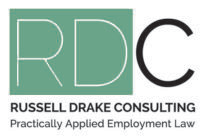Russell Drake explains…
It is not an uncommon scenario where an employee has outstanding debts owing to the employer at the conclusion of their employment – So is there a way that these can be recovered?
A robust employment agreement will generally include an employee deductions clause that enables the employer to make a deduction from the final pay of an employee where it is reasonably believed that a debt is owing. In such cases this allows the employer, subject to consultation with the affected worker, to make the deduction from the final wage payment and/or if this is insufficient to cover the remaining value of the debt, from any leave entitlements owing.
The presence of the clause in itself does not however give the employer the automatic right to make the deduction with the usual procedural fairness principles associated with consultation needing to be applied. This includes advising the employee of the proposed deduction, allowing the employee the opportunity to submit feedback (and seek representation) and then giving due consideration of the employee’s perspective.
However, when implementing the required process, it is not uncommon for the employee to respond by advising that they now withdraw their consent for the employer to make any deductions from their final pay – the consent previously given through the signing of the agreement pursuant to s5 of the Wages Protection Act 1983 which states:
An employer may, for a lawful purpose, make deductions from wages payable to a worker—
- with the written consent of the worker (including consent in a general deductions clause in the worker’s employment agreement); or
- on the written request of the worker.
In such case, it would therefore be unlawful for the employer to seek to continue to make the proposed deduction.
The next avenue therefore is through the use of a ‘with-holding’ provision, however very few employment agreements that we review contain such a clause. The existence of the ‘with-holding’ clause enables an employer to lawfully retain an amount of money equal to the value of the debt owed, until such time as the dispute (regarding the outstanding balance) is resolved.
At this point it is not then the employer’s responsibility to seek to resolve the dispute, but more the employee’s duty to initiate actions to recover the with-held money if they genuinely believe that the repayment of the debt is unjustified. This process can take considerable time and result in the employee incurring costs greater than the value of the debt owed, with many employees then walking away without further communication.
A recent case in the Employment Relations Authority demonstrated the value of s149 agreements in these circumstances where, after having signed the agreement, the employee then defaulted in following the agreed payment regime. The employer submitted a Breach of Settlement claim within the ERA with the ERA then ordering the employee to make the full payment within 28 days. In addition, the employee was ordered to pay additional penalties for enforcement costs, contributions to the employer’s costs in seeking recovery and a penalty to the ERA of $1,000 for breaching the terms of settlement. Overall the total costs of the penalties imposed exceeded the full value of the original debt.
It is therefore entirely possible for the employer to recover any debt reasonably believed to be owing from an employee, however the chances of a successful recovery are enhanced where the employment agreement contains the required clauses (deductions and with-holding) or where the parties enter a legally enforceable agreement.
If you are unsure as to whether your employment agreement template will support you in such circumstances, or you need to enter into a robust settlement agreement in order to recover a debt from an employee, please feel to contact us directly.

